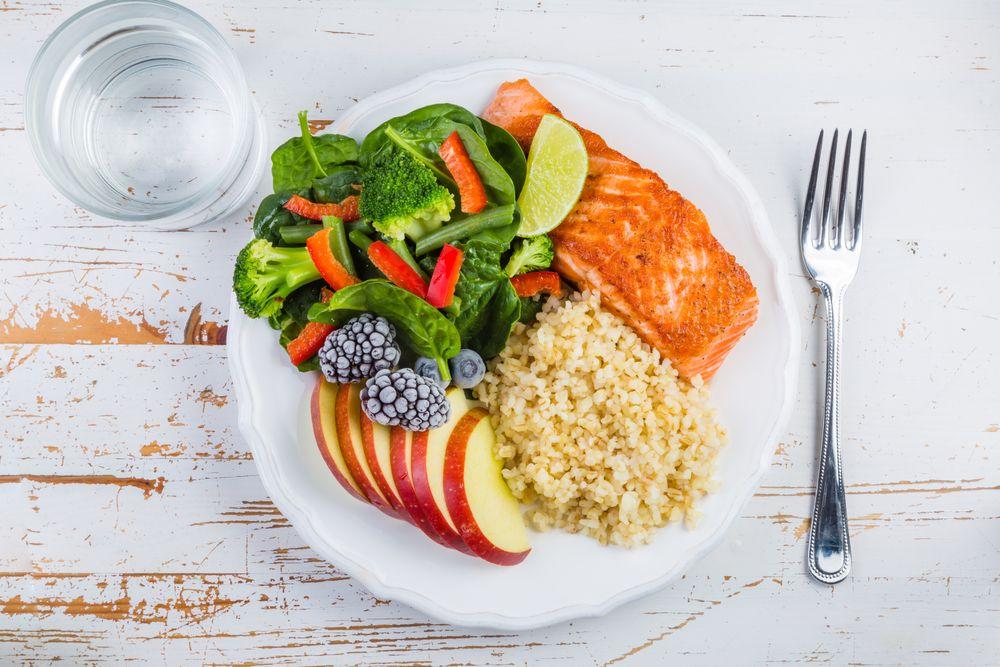In a world where culinary delights often tempt us with their rich and indulgent flavors, the quest for maintaining a nutritionally balanced low-calorie diet can seem like an elusive dream. Yet, imagine a realm where every bite you take not only satisfies your palate but also nourishes your body and invigorates your spirit. Welcome to the art of balancing nutrition with mindfulness, where calorie-conscious choices transform into a vibrant lifestyle filled with energy and vitality. This article will be your guide on this exciting journey, offering insights and inspiration to help you embrace a diet that not only supports your health goals but also celebrates the joy of eating. Let’s embark on this path together, discovering the delicious harmony of flavor and nutrition in every meal.
Crafting Flavorful Low-Calorie Meals with Nutrient Density in Mind
Embarking on a journey to maintain a low-calorie diet doesn’t mean sacrificing flavor or nutrition. In fact, it’s an opportunity to explore a vibrant world of ingredients that offer both taste and health benefits. The key is to focus on nutrient-dense foods that pack a punch without packing on the calories. Imagine colorful plates filled with a rainbow of vegetables, lean proteins, and whole grains, each contributing a unique set of vitamins and minerals to your daily intake.
To achieve this, consider incorporating the following elements into your meals:
- Leafy Greens: Spinach, kale, and arugula are low in calories but rich in essential nutrients like iron and calcium.
- Lean Proteins: Options like chicken breast, turkey, and tofu help maintain muscle mass while keeping calorie counts low.
- Whole Grains: Quinoa, brown rice, and oats provide fiber and energy, ensuring you feel full and satisfied.
- Healthy Fats: Avocados, nuts, and seeds offer heart-healthy fats that can enhance flavor and satiety.
- Fresh Herbs and Spices: These can transform any dish with minimal calorie addition, bringing depth and complexity to your culinary creations.
By focusing on these ingredients, you can craft meals that are not only low in calories but also rich in flavor and nutrition, supporting a balanced diet that excites the palate and nourishes the body.

Harnessing the Power of Portion Control for Balanced Nutrition
Embracing portion control is like having a secret key to unlock a world of balanced nutrition without feeling deprived. It’s not about restricting yourself but about making smart choices that can transform your dietary habits. Imagine savoring a delicious meal, knowing that each bite is contributing to your health goals. By focusing on portion sizes, you can enjoy a diverse range of foods while keeping your calorie intake in check. Here’s how you can master this art:
- Visualize Your Plate: Fill half your plate with colorful vegetables, a quarter with lean protein, and the remaining quarter with whole grains. This visual guide helps maintain balance.
- Use Smaller Plates: Trick your mind into feeling satisfied by using smaller dishes, which naturally limits the amount you serve yourself.
- Mindful Eating: Focus on your meal, chew slowly, and appreciate the flavors. This not only enhances enjoyment but also helps recognize when you’re full.
Incorporating these techniques can be empowering, turning every meal into an opportunity to nurture your body and stay aligned with your nutritional aspirations. Remember, small changes can lead to significant results!
Incorporating Superfoods for a Boost of Vital Nutrients
Transforming your diet with the power of superfoods can be a game-changer when aiming for a nutritionally balanced low-calorie diet. These nutrient-dense wonders pack a punch with minimal calories, making them ideal allies in your wellness journey. Kale, for instance, is a leafy green superstar loaded with vitamins A, K, and C, while being low in calories and high in fiber. Chia seeds, small but mighty, offer omega-3 fatty acids and a good amount of protein, helping you feel full longer. Integrating these foods into your meals can enhance both flavor and nutrition without compromising your calorie goals.
- Blueberries: Rich in antioxidants and vitamin C, perfect for a sweet yet healthy snack.
- Quinoa: A versatile grain high in protein and essential amino acids, great for salads or as a rice substitute.
- Avocado: Provides healthy fats and potassium, excellent for smoothies or toast toppings.
- Spinach: An iron-rich leafy green that adds nutrients to any dish, from omelets to smoothies.
By creatively incorporating these superfoods into your daily diet, you not only add a burst of flavor but also bolster your intake of vital nutrients. These choices ensure your low-calorie diet remains rich in essential vitamins and minerals, keeping you energized and satisfied.
Creating a Sustainable and Enjoyable Low-Calorie Lifestyle
Embarking on a journey towards a low-calorie lifestyle doesn’t mean sacrificing flavor or enjoyment. Instead, it’s about embracing a variety of vibrant, nutrient-dense foods that not only satisfy your taste buds but also nourish your body. Here are some key strategies to ensure your low-calorie diet remains both sustainable and enjoyable:
- Prioritize Whole Foods: Fill your plate with colorful vegetables, lean proteins, and whole grains. These foods are naturally lower in calories and packed with essential nutrients.
- Embrace Variety: Experiment with new recipes and ingredients to keep your meals exciting. Think of adding exotic spices, different cooking methods, and seasonal produce to avoid monotony.
- Mindful Eating: Focus on the experience of eating by savoring each bite. This practice helps in recognizing hunger cues and prevents overeating, allowing you to enjoy your meals fully.
- Hydration is Key: Often, thirst is mistaken for hunger. Keep yourself hydrated throughout the day with water, herbal teas, or infused beverages.
- Smart Snacking: Opt for snacks that provide a balance of protein and fiber, such as a handful of nuts or a slice of whole-grain toast with avocado, to keep energy levels stable.
By integrating these habits into your daily routine, you can create a low-calorie lifestyle that feels less like a diet and more like a fulfilling way of living. Remember, the goal is to cultivate a relationship with food that is both nutritious and pleasurable, ensuring long-term success and well-being.



